by Sher Delva | Jul 24, 2017 | Addiction, Addiction Stigma, Addiction Treatment, Drug Abuse, Mental Health, Mental Health Stigma, Stigma, Therapy, Uncategorized, Withdrawal
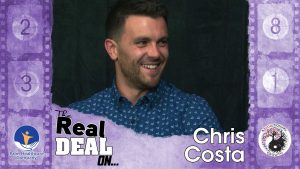
Recently, Chris Costa was a guest on The Real Deal On… with Dug McGuirk where they discussed the topic of reinvention. Chris Costa is incredibly familiar with reinvention. He turned his entire life around after a long battle with addiction, and now shares his story of strength and hope to help others.
A little over five years ago, Chris Costa was at his breaking point. Costa describes how his family allowed him to reach rock bottom when they kicked him out of the house in the middle of February in Boston. During this time, he realized how unmanageable his addiction had become.
“I was left on my own, and I was left in the position where I really had to come to terms with the fact that I had a problem, and it became more and more apparent every day that it was a problem that I couldn’t fix myself,” he says.
Once his resources dried up, Costa did whatever he needed to support his habit and prevent feeling sick. While he is not proud of his past, he is open about it because he believes it led him to where he is today.
“I’ve had to do things that I’m not proud of. I’ve had to do things that I’ve had to make amends for. I’ve had to do things that certainly wouldn’t hold up to the values that I have today or the values that I even had then,” he admits.
“Waking up on a couch of someone you don’t even know and seeing yourself in the mirror and having the disappointment of what’s happened over the past several years hit you in what they call a moment of clarity… It’s heavy because you feel like you’ve betrayed not only yourself but everybody that cares about you, and it’s hard to understand why you’ve done what you’ve done, and it’s hard for them to understand why you’ve done what you’ve done.”
—
Shortly after his moment of clarity, Costa walked into Palm Partners on February 12, 2012, finally ready to turn his life around.
At Palm Partners, Costa learned about what it meant to be an addict. He realized there were tools that could help him navigate life, and he began to understand the reasons for his addiction.
“One of the things I’ve learned […] is we’re not bad people trying to learn how to be good. We’re sick trying to learn how to be well,” he says.
Learning to Follow Suggestions
When Costa first arrived at Palm Partners, his plan was to stay no more than 30 days before returning home. However, one of the things drilled into his mind in treatment was to take suggestions.
Following suggestions, he ended up staying at Palm Partners for 60 days and then spent six months at a halfway house. While at the halfway house, Costa was required to get a job and earn money on his own.
“I was walking to work in the middle of August in South Florida, and I was hitching rides everywhere I had to go to a meeting,” he says.
“I had to ask for rides, and ask for help, and ask what to do next. It all led to taking suggestions and asking where am I supposed to go and what I am supposed to do because everywhere I looked there were people that had more time than me, there were people that had more experience than me and there were people that had been through this. Who am I to have the answers?”
Chris Costa did not rely on handouts. Instead, he established the tools to become self-sufficient. After eight months of working the 12-steps and meeting with sponsors, Costa returned to Boston with the “toolset” he had developed while in South Florida. Chris Costa knew once he arrived, he needed to surround himself with the right people and create clear boundaries. He had to cut the people from his past that would not serve him.
“I made sure that the people I was returning to, the group of friends that I was returning to, and the people in my life that I knew I would be spending all my time with understood what I was going through, and understood what had taken place in my life,” he says.
Reflecting on the Family Program
One of the biggest revelations Costa had while at Palm Partners was when he realized his family needed help just as much as he did. The family program at Palm Partners helped his family understand his addiction, and process everything that had happened.
“They may not have been running around and doing what I had to do to not be sick, but at the same time, they’re sick in their own way in terms of enabling and not understanding the dynamics of what’s happening.”
We would like to offer you the FREE GIFT of a checklist to help decipher if you are helping or hurting a loved one who is struggling with addiction.
Click for FREE GIFT
Over the course of his recovery, Costa learned to understand and make amends with those he has hurt in the past.
“It’s a process in educating the people around you or making amends with the people you’ve hurt or burn bridges with. Not all those bridges are going to be salvageable.”
On Keeping the Momentum Going
Now over five years sober, Costa admits that life is an up and down journey. He’s learned to keep the momentum going even when life gets challenging.
“I think one of the biggest things that I try to come back to, and I think it’s said by the great Tony Robbins quite a bit, is ‘don’t let life happen to you, let it happen for you,’” he says.
Costa believes practicing gratitude is the key to navigating life when it becomes difficult.
“Finding the ability to be grateful on a daily basis, it’s a challenge. But I think us as addicts or alcoholics or people that struggle with certain issues, we’ve been through a lot,” he says. “And that gives us the ability to really appreciate some of the little nuances in life that we might not appreciate.”
Overall, Costa is grateful to have his program and tools that keep him sober. He continues to work hard as a driven Sales Director and share his incredible story of recovery with others.
“I never would be the person that I am today without having to experience what I’ve experienced and do the work I’ve had to do to get to where I am today.”
Watch the full interview to learn more about Chris Costa’s journey and delve into more important topics like achieving career goals and maintaining a strong recovery program. Costa’s story is a fantastic illustration of how working a solid program can transform your entire life. If you are struggling with addiction, please reach out. You do not have to do this alone. Call now.
CALL NOW 1-888-922-5398
by Sher Delva | Jul 18, 2017 | Addiction, Addiction Stigma, Addiction Treatment, Drug Abuse, Mental Health, Stigma, Therapy, Uncategorized

(This content is being used for illustrative purposes only; any person depicted in the content is a model)
A new Oregon bill is headed straight to the governor’s desk.
If passed, the bill would reclassify certain illicit drugs from a felony to a misdemeanor. The goal is to reduce the state’s prison population.The bill would also increase access to treatment for those without prior felonies or convictions for drug possessions, the Washington Post reports.
The bill would reduce penalties for possession of heroin, cocaine, meth and other illicit substances. The bill was already approved by the state legislature and now awaits the signature of the governor.
“We are trying to move policy towards treatment rather than prison beds,” said state Senator Jackie Winters, co-chair of the Public Safety Committee. “We can’t continue on the path of building more prisons when often the underlying root cause of the crime is substance use.”
Also included in the bill is a new initiative that will track the effects of law enforcement policies and procedures by collecting data on the demographic of Oregonians stopped by police. This initiative aims to identify any potential racist practices and address the disproportionate number of black Oregonians behind bars.
According to a 2016 report, by the Sentencing Project, blacks make up less than 2% of the state’s population; yet represent more than 9% of the state prison population as of 2014. Furthermore, the report found that the incarceration rates for black individuals are 5.6 times that of whites.
“Too often, individuals with addiction issues find their way to the doorstep of the criminal justice system when they are arrested for possession of a controlled substance,” says Kevin Campbell, executive director of the Oregon Association Chiefs of Police. “Unfortunately, felony convictions in these cases also include unintended and collateral consequences including barriers to housing and employment and a disparate impact on minority communities.”
Still, some lawmakers are wary of the bill and disagree with its “soft on crime” approach. State Senator Betsy Johnson, a Democrat who voted against the bill, said the shift toward decriminalization promotes a “hug-a-thug policy.”
The bill is headed towards the desk of Governor Kate Brown who will ultimately have the final say. In the past, Governor Brown has expressed support for the bill.
“While we still have much work ahead, HB 2355 represents an important step towards creating a more equitable justice system to better serve all Oregonians,” said Brown. “Addressing disparities that too often fall along racial and socioeconomic lines should not be political issues.”
While states like Oregon are attempting to address these disparities, on the federal level, things are headed in a different direction. Recently, Attorney General Jeff Sessions attended a D.A.R.E. training conference in Texas. While at the conference, Jeff Sessions praised the D.A.R.E. program of the 80s and 90s and hinted at bringing back that initiative today.
D.A.R.E is famously known as the “Just Say No” anti-drug initiative led by Nancy Reagan that took over school campuses in the 80s and 90s. The problem with the campaign is that there were never any proven results stating the program was effective in lowering drug use.
According to the U.S. Bureau of Justice Assistance:
“To date, there have been more than 30 evaluations of the program that have documented the negligible long-term impacts on teen drug use.”
Although the program has undergone some changes, the effectiveness of the initiative remains uncertain. Overall, it is interesting the different strategies certain parts of the country are taking in regards to addressing addiction. While some are focused on decriminalization, other areas have a tougher approach.
What are your thoughts on these new policies? Getting help can save a life, and treatment can offer a far better future than prison. If you or someone you love is struggling, please call toll-free now.
CALL NOW 1-888-922-5398
by Sher Delva | Jul 11, 2017 | Addiction, Addiction Stigma, Addiction Treatment, Mental Health, Withdrawal
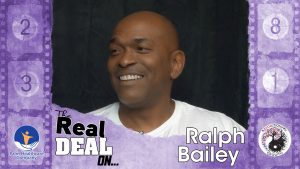
Just over five years ago, Ralph Bailey was in his home about to attempt suicide. His addiction had spiraled out of control, and he did not believe he could ever live a day without drugs and alcohol. Then, in a moment Bailey describes as a“divine intervention,” his sister happened to come by the house and stopped him.
The next day, Bailey checked into Palm Partners Treatment Center, a Palm Healthcare facility. Now five years sober, Bailey is a valued employee at Palm Partners and speaks regularly to clients about his journey overcoming his addiction.
Recently Bailey was a guest on The Real Deal On… with Dug McGuirk. Surrounded by lights and cameras, Bailey describes the feeling of sharing his story as a “full circle” moment. He remembers a time when the cameras were on him for an entirely different reason. He was under investigation.
“I remember back in 2010 when I caught a case, and the FBI came in with pictures and audio of me, and it looks just like this.” He says looking around the room. “Now, when I say full circle, it means I went from being prosecuted with these cameras and microphones to actually sharing my experience, strength and hope with these same microphones and cameras.”
Reflecting Back on his “Death Date”
When Bailey first walked into Palm Partners on May 12, 2012, he was broken. In fact, Bailey says the most important day of his sobriety is not the day he entered treatment, but the day he attempted suicide. He refers to this day as his “death date.”
“I was broken to the point where my sobriety date is May 12, 2012, but I always tell my story with my death date which is May 11, 2012. What I mean by that is May 11 is the day I decided to commit suicide,” he says.
At this point, Bailey had struggled with addiction most of his life. He did not believe he could live without drugs and alcohol, but he did not want to continue living like he was. Therefore, suicide seemed like the only way out.
“I didn’t like where I was, and I didn’t want to go back to where I’ve been, and I was too scared to move forward because I could never picture living life without drugs and alcohol, so my plan was to end it all.”
In a moment that Bailey describes as a “divine intervention,” his sister happened to stop by the house and prevent the whole thing from happening.
“For me, it was totally divine intervention because I was successful at everything and it just so happens that for my suicide attempt, I got stopped. My sister came over to my house and stopped the whole thing. That’s when I broke down and told her I needed help.”
To his surprise, his sister told him the entire family knew about his addiction. Up until that point, he thought his addiction had been a secret for the past 20 years.
“She gave me the biggest hug and said ‘This is what the family’s been waiting to hear. You wasn’t fooling nobody,’ And the whole time, I’m thinking I had everybody fooled [and] nobody knew I was getting high.”
Learning to Cope Without Drugs
From an early age, Bailey struggled with abusing drugs and alcohol. He started around eighth grade and said he could not remember a time he did not use drugs and alcohol before his sobriety date.
“I can’t picture a time when I didn’t live without either one, and that’s what got me here.”
Still, like many, Bailey did attempt to get sober on his own.
“I did what everybody tries to do which is the detox on the couch.” He laughs.
Like most who attempt this method, he was unsuccessful. He did not know how to cope with the emotional and physical withdrawals of not using.
“It worked out good for a couple hours until boredom came in, until I didn’t know what else to do besides use drugs and alcohol, so I had nothing to fill the void when I tried to stop and that’s kinda related to my attempted suicide because I didn’t know what to do so that’s when I finally said enough is enough”
Bailey credits the staff, especially the therapists at Palm Partners for helping him learn how to fill the void.
“They’re the ones that made me realize I had more than just a drug and alcohol problem. I had anger issues. I had family issues.”
Bailey entered treatment in his 40s, a later stage of life compared to many in treatment, but he did not let the age of those around him affect his recovery process. Instead, Bailey says he wanted to make up for all the time he had wasted.
“I’ve wasted so much time in my life,” he says. “At that point, I didn’t care if I was getting clean with 18-year-olds, 20-year-olds; my main concern was the end result. As long as that was the same, it was all I cared about, but the main thing: I was tired. I had enough”
Starting Over On a Clean Slate
Furthermore, Bailey says he went to treatment as a “blank sheet of paper” and allowed the therapists and staff to provide him “new blocks to build on.”
“I took everything I knew and threw it out and started over,” he says.
The therapists at Palm Partners gave him the toolbox he needed and allowed him to realize he had the tools all along.
“That’s why I always say be honest with your therapists while you’re here because they can’t help you if you don’t tell them what’s wrong.”
At treatment, Bailey learned valuable lessons like how to deal with life when it does not go the way you want:
“Incidences like not getting your phone or incidences where you want to do something and you can’t should be a tool as ‘Alright, well how am I going to cope with wanting something that everybody has and I can’t have mine?’ That’s the same [lesson] that helps me stay clean. ”
Bailey says the times he could not access his phone taught him patience and helped him realize ineffective character defects addicts struggle with.
“Addicts, first we are manipulative, and then when manipulation doesn’t work, we’re crybabies,” he affirms. “We throw temper tantrums when we don’t get what we want, but we can’t do that in the real world.”
Navigating Grief: Learning to Change Your State:
One of the most powerful lessons Bailey shared in the interview was how he dealt with the death of his brother. After hearing his brother had passed away, he did what most would not think to do at that moment: jumping jacks.
“I had to do something to change my state,” he explains.
In that moment of despair, Bailey remembered something he learned from clinical director Dr. Beley about the way the addict’s mind works.
“Your brain automatically wants to take care of you. It doesn’t want you to feel any pain, but you have a five-second window to make a decision before you go back to what’s comfortable,” he says.
Bailey remembered the way the brain operates in regards to pain. He knew if he did not change his state immediately, his mind would retreat to what was most comfortable.
“If I didn’t start doing jumping jacks right away, my brain would automatically click to get high because that’s how I cope with things so, in order to stop that, I started doing jumping jacks and was able to change my state and then actually think and dissect everything that’s going on. Then start with a clear head and then move forward.”
“It is so huge to be able to change your state. You have to,” he says.
—
Ralph Bailey went from a hopeless drug addict to an inspiration of strength to those struggling in recovery. Throughout the interview, Ralph Bailey further elaborates on the importance of having a higher power, going to meetings and giving back. He talks about positive affirmations and further defines how to overcome negative situations through changing your state. We highly suggest you listen to the full interview for more on his journey.
“I never realized I was in a cocoon. I flourished, I came out of it, and it’s like wow, “he concludes.
If you are currently struggling in recovery, just remember that it is never too late to seek help. Even if you believe otherwise, recovery is possible. You do not have to live every day wondering where your next high will come from. Instead, you can regain control of your life like Ralph Bailey did. We want to help you. If you or someone you love is struggling, please call toll-free now.
CALL NOW 1-888-922-5398
by staff | Jul 7, 2017 | Addiction, Addiction Stigma, Addiction Treatment, Detox, Family, Inpatient Treatment, Outpatient Treatment, Parenting
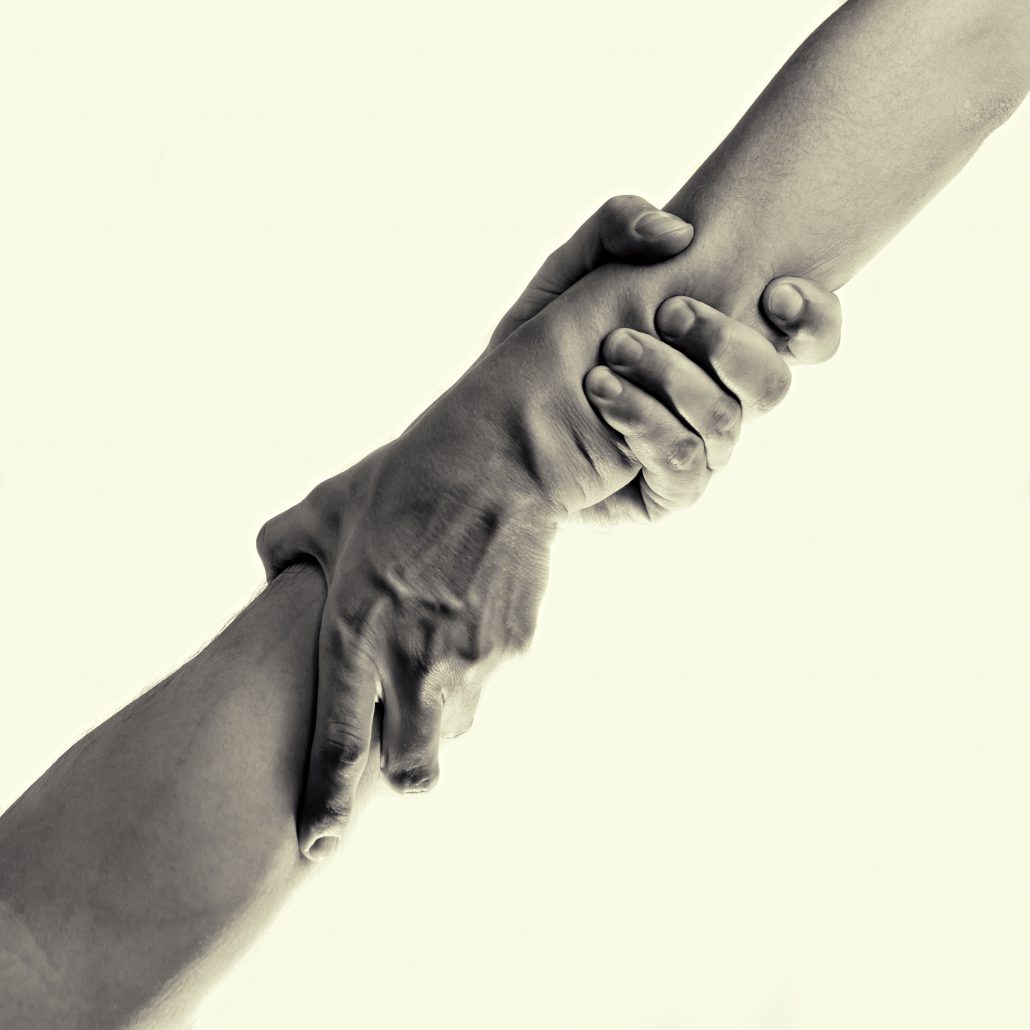
Every member of the Palm Healthcare Family, from the administrators behind the scenes to those on the front lines along with a dedicated clinical team, are committed to helping support and educate anyone looking for help when struggling with a substance use disorder. Given the recent issues facing the nation, including the addiction crisis and the concern for ensuring safe and effective treatment, our clinical staff has chosen to speak to everyone out there looking for answers in their own words, hoping to shine new light on some difficult conversations.
To learn more about how to handle the difficult emotions and situations parents and family members face with an addicted loved one, download our FREE e-book
“What is the Difference Between Helping and Hurting”
DOWNLOAD FREE E-BOOK
Here we have some crucial information from Janice Hemmer, Tischler LCSW, ACSW, CAC who is the Senior Program Director of Palm Healthcare, with 21 years experience in the field of addiction.
Don’t be afraid to ask for help
Nearly every day, you can find an article in the media or online that discusses the addiction epidemic facing the United States and the state of drug and alcohol treatment today. Stories of patients being taken advantage of by unseemly “Sober Homes” and news reports of overdoses are rampant. To some degree, it is a good thing that the media is shining a light on this insidious problem. After all, people who only want to make a quick buck by manipulating those in dire need of help are out there in force. We do need to make sure that the issue is addressed and we should never stop trying to force these criminals out of the system. However, are media outlets and sensationalism scaring people away from the professional and reputable treatment programs that produce real long lasting results?
It is vital to remember that addiction is a neuro-biological disease. Addicts need professional medical intervention and psychotherapy to address the true causes of their addiction. It is incumbent upon the professionals in the treatment community, and the media, to educate and inform people about how to properly vet a treatment facility or program. To that end, the remainder of this article will focus on what patients and their families need to know to get their addicted loved one into an effective treatment program.
Here are some important questions you should ask about any treatment program, along with the answers you should be looking for.
Level of Credibility
-
What credentials does the program have?
Your state requires that addiction treatment programs be licensed, it is important to check with the state about the current validation of any license. Additionally, organizations such as “The Joint Commission” and “Commission on Accreditation of Rehabilitation Facilities” or CARF ongoingly audit treatment programs to ensure that they are meeting the highest possible standards.
-
Content of programming: What theoretical models of treatment do they follow?
There are a variety of treatment modalities available to behavioral health professionals. These can include Cognitive Behavioral Therapy, Trauma Therapy, Treatment of Co-Occurring Disorders, Life Skills and many others. A reputable program will design a treatment regimen that is suited to your specific issues.
Level of Transparency
-
Pre-Screening
Does the intake coordinator inform you of any tests or procedures that you must submit to before or during the admission process (Blood tests, urinalysis etc.)? Do they ask questions about your medical history? Do they discuss all possible costs that you may incur while in the program and how that will be handled?
-
Family Involvement
Does the facility offer a family program that encourages family members to become involved with your treatment and invested in a positive outcome? Do they educate the family about the goals of treatment and involve them in the discharge planning procedures? Good programs know that the cooperation of family members is a big factor in sustaining recovery. Oftentimes, families need to understand the clients level of functioning and how to avoid behaviors that might inadvertently interfere with the recovery process.
-
Does the program allow you to tour the facility?
You should be able to see the environment that your loved one will be living in during treatment. Do they discuss their rules and day to day expectations?
Don’t throw the baby out with the bathwater. While it is important to be vigilant in your search for a reputable program and to educate yourself as much as possible about addictive behaviors, don’t let the stories about scammers scare you or your loved one away from treatment. There will always be those who try to take advantage of people. Just remember that a big part of treatment is learning how to identify and avoid people who exhibit those behaviors. Due diligence goes a long way towards securing treatment for yourself or for those you love. It is well worth the effort.
Janice Hemmer- Tischler LCSW, ACSW, CAC
For more information on how to find a safe, ethical and effective addiction treatment program make sure to explore more of our Palm Healthcare Company website. If you or someone you love is struggling, please call toll-free now. We want to help.
CALL NOW 1-888-922-5398
by Justin Mckibben | Jun 28, 2017 | Addiction Treatment, Alcohol Addiction, Inpatient Treatment, Internet, Social Media, Stigma
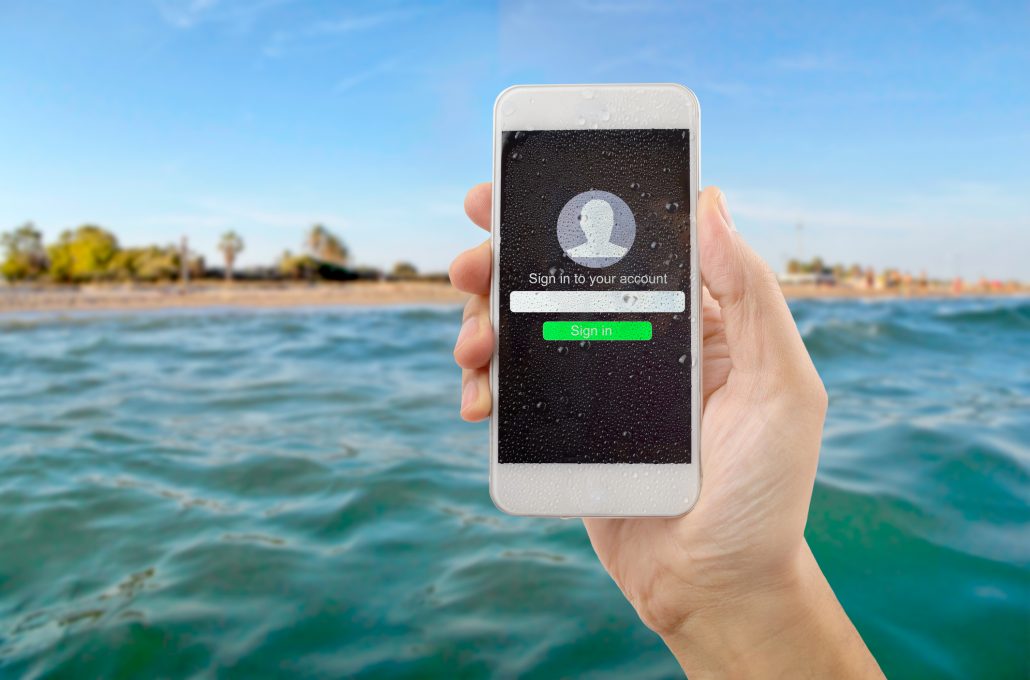
When news travels at the speed of social media there isn’t much of a waiting period for responses to issues that strike a nerve with people. As we were writing and publishing our first response to the story aired by the NBC News Investigation host Megyn Kelly, along with other media outlets such as The New York Times, a fire was catching that lit the internet up.
While we already wrote a response to the Megyn Kelly piece, we wanted to also highlight the amazing response from the recovery community!
The Megyn Kelly story was focused on exposing the fraud and corruption that has infiltrated the addiction treatment industry in South Florida, utilizing interviews with local law enforcement, first responders, politicians and victims of patient brokering and illegitimate sober homes. While it may have been an eye-opener to some in other states, this wasn’t news to the population of South Florida. These tragedies and indiscretions have been talked about for years now. The topic is still causing contention and debate within the community.
However, when the piece aired just this past weekend, many of South Florida’s recovery community set aside much of the debate to answer what was being said.
South Florida Recovery on Social Media
Facebook turned into a major platform yesterday as new hashtags went viral, including:
- #Igotcleaninsouthflorida
- #tellthewholestory
- #southfloridarecovery
- #wedorecover
A huge number of these posts were attached to personal stories of suffering, recovery and astounding accomplishments. Others were attached to photos. Many posts demanding that the media acknowledge the voice of the actual people in the South Florida recovery community. Most of the posts included people sharing their sobriety dates (meaning the day they finally stop drinking or using drugs).
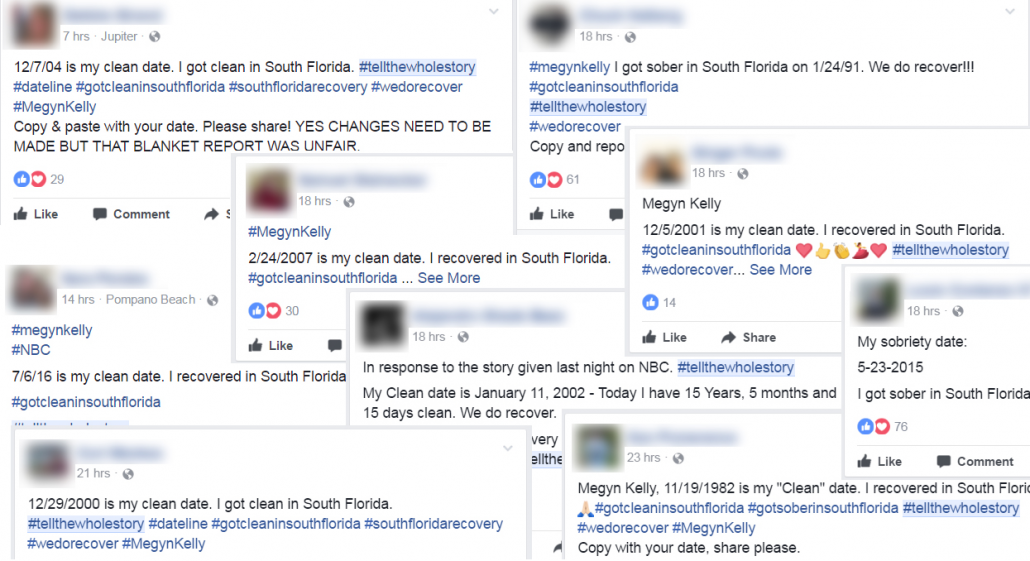
Photo: Facebook posts responding to Megyn Kelly
There is a clear message here- the South Florida recovery community is strong and willing to take a stand.
This profound and inspiring response has been completely organic. One after another people from many areas, especially Delray Beach, started sharing their experience with treatment and recovery in South Florida. Megyn Kelly was tagged in these posts, so surely her social media team got pretty busy sifting through all those notifications.
Some were from people with several months clean and sober, other posts were people with a couple decades of recovery time. There were those who came to Megyn Kelly’s defense, while others took the whole thing as an opportunity to attack her… or the people responding to the story. Still, the presence of South Florida’s own population of people overcoming addiction was making a lot of waves.
The Megyn Kelly Conversation
One thing we should acknowledge about the piece on Megyn Kelly’s show… is it worked.
Granted the camera and narration do not paint the most flattering picture, but it revitalizes an important conversation- safeguarding the addiction treatment industry in South Florida. It worked because we can at least take something from it; the South Florida treatment industry needs to work together with community leaders, officials and people in recovery in the area to help make things better.
However, people in the recovery community did take offense to statements made by people during interviews that implied people were not coming to South Florida and getting better. It might not feel fair to a lot of people who thrive in South Florida’s recovery community that they felt marginalized or misrepresented. Some of the comments suggest that people sent to Florida are more likely to end up dead than they are to end up better, but there seems to be a lot of people with something to say about that.
After hearing the Megyn Kelly story the recovery community in South Florida chose to take the opportunity to stand up for one another. Overnight there was an up-welling of support for those who have come to South Florida, made a life for themselves after treatment and become active members of the community.
It’s About the People
More importantly, this is all about the people who have recovered and the people who are most desperate for it. We want people to know that there are unethical and illicit businesses in every state that exploit this same system, but there are world-class addiction treatment programs in South Florida that take great pride in being part of the solution, not the problem.
This is about the people who have changed their lives, acknowledging their strength, hope and adversities. It is about the people who want to believe that there is a safe place with people who care about improving themselves and each other. We have to let people know what to look for, how to ask the right questions and how to make educated decisions on how to best treat them or their loved ones.
For a more detailed look into the difference between addiction treatment programs and sober living facilities, download our FREE e-book:
5 Critical Mistakes When Picking a Treatment Center and How to Avoid Them
DOWNLOAD FREE E-BOOK
We are proud of how the recovery community of South Florida has responded to the Megyn Kelly story. Part of fixing the issues facing people with addiction is to strip away the stigma of substance use disorder, and a keystone to fixing the stigma is education and awareness. South Florida stood up and told the world #wedorecover because they know if we #tellthewholestory then the entire nation may see that addiction treatment is about healing and helping people together.
South Florida recovery set social media on fire a few nights ago… because South Florida recovery is full of absolutely amazing people too! Imagine if we did that all the time! Imagine if we took it upon ourselves to make this happen every chance we got! Who might get the help they need because of what we share?
My name is Justin Mckibben
My sobriety date is November 28th, 2013
#igotsoberinsouthflorida
Every recovery community has its faults, but the recovery community of South Florida is an amazing place to start your journey to change that could save your life. If you or someone you love is struggling, please call toll-free now.
CALL NOW 1-888-922-5398







